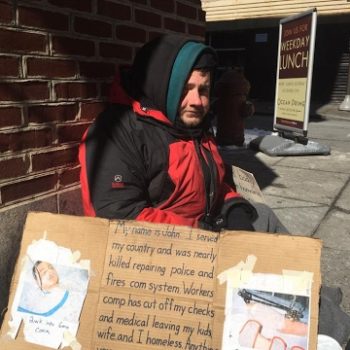Mary’s Place is certainly a different kind of shelter. Having opened its doors during the early months of 2020, the differences aren’t hard to spot.
For one thing, Mary’s Place has the distinction of being the first shelter built into a corporate office. Amazon set aside tens of thousands of square feet in one of its Seattle campus buildings, signing a 10-year operating agreement stipulating that no rent would be charged to the non-profit. They’re even footing the utility, maintenance, and security bills.
Amazon’s top real estate executive stressed that the 10-year term was more of a formality than anything else. “Maybe someday, if homelessness in Seattle is resolved, we can turn that back into space for ourselves. As far as I’m concerned, it’s theirs as long as they need it,” John Schoettler said.
Big tech has always had a challenging relationship with homelessness. With Mary’s Place, Amazon is trying to take control of the narrative while also becoming a meaningful contributor to Seattle’s homelessness problem. While some applaud the pricey effort, others are skeptical of the endeavor.
Less subjective, of course, are the actual numbers. The figures are impressive. Spanning eight floors and some 63,000 square feet, Mary’s Place will help hundreds of families to get support that many of them cannot find anywhere else.
Let’s hear how Amazon envisions and pitches the homeless shelter that they’ve built.
In Their Own Words
The new Mary’s Place shelter on Amazon’s campus has a lot going for it, a fact that Amazon is more than willing to expound upon. Their blog posted an entry late last year that spoke at length about ‘building a home with a heart,’ acknowledging that families move forward when they feel supported and have a sense of community.
To that end, designers have gone to great lengths to integrate social experiences into the living space. Industrial-sized kitchens, children’s play areas, pro bono legal support services, and even a care space for families with medically fragile children all feature in Mary’s Place. The downtown location of the shelter also means that clients live in close proximity to mass transit and healthcare facilities.
“Every inch of this space was intentionally designed,” said Marty Hartman, Executive Director of Mary’s Place. “This building is equal parts durable, flexible, warm, and welcoming, to ensure that families know that here they will be respected, they are safe, and they are loved.” Families feature front and center in Amazon’s vision of homeless people and their logo-matching, citrus-colored future.
Amazon estimates that this project, when measured across the 10-year term, will amount to $100 million. This makes Amazon’s Mary Place shelter one of the single largest contributions by any single organization.
But more than a monetary gift, the tech company is hoping that the shelter will act as a springboard to even more giving by their employees. “I think it’ll take everyone to help and contribute. Homelessness is a crisis that isn’t going away,” added Hartman.
Amazon’s Contribution is Rubbing Some the Wrong Way
“It’s not bold and it’s not significant, at least with respect to the crisis,” said Sara Rankin, founder of the Homeless Rights Advocacy Project.
Rankin claims a $100 million homeless shelter lacks significance. Here’s some context: Amazon has long been criticized for not being as philanthropic as its Seattle-based tech rivals. A $2 billion “Day 1 Fund” didn’t stop the bad press either.
Part of the criticism stems, not just from a perceived lack of giving, but also indirectly increasing homelessness numbers. Dubbed “the Amazon effect,” the company’s meteoric rise has been matched only by Seattle’s skyrocketing housing costs. The average price of a new single-family home in the city rose by some 84 percent between 2010 and 2017. That’s nearly twice the national increase over the same time period.
Rankin added that ‘Mary’s Place is a safe investment for Amazon because the nonprofit caters to the most sympathetic kind of homeless, [families].’ Who doesn’t want to support families? But the endeavor does little to address the root problem of the city’s homelessness. It largely ignores the chronically homeless that often suffer from mental health or addiction issues. These also happen to be the most expensive to house and treat.
As large as Amazon’s contribution is, it does little to address the housing crisis it helped create.
Rankin suggests that Seattle-based tech companies “could virtually eliminate Seattle’s tent cities if they helped fund more permanent affordable housing with social services managers to support those struggling the most.”
Amazon did contribute to the development of such a project—to the tune of $6.6 million. However, affordable housing advocates would like to see more contributions like this one.
Homelessness advocates see the $100 million price tag and think about the possibilities, about how many of the city’s most needy could have been helped. Nicole Esparza, a professor in the field of inequality and philanthropy, helped strike a balance:
“Amazon doesn’t have to give to homelessness. And so it is a gift, and some people would say any gift is a gift.”












